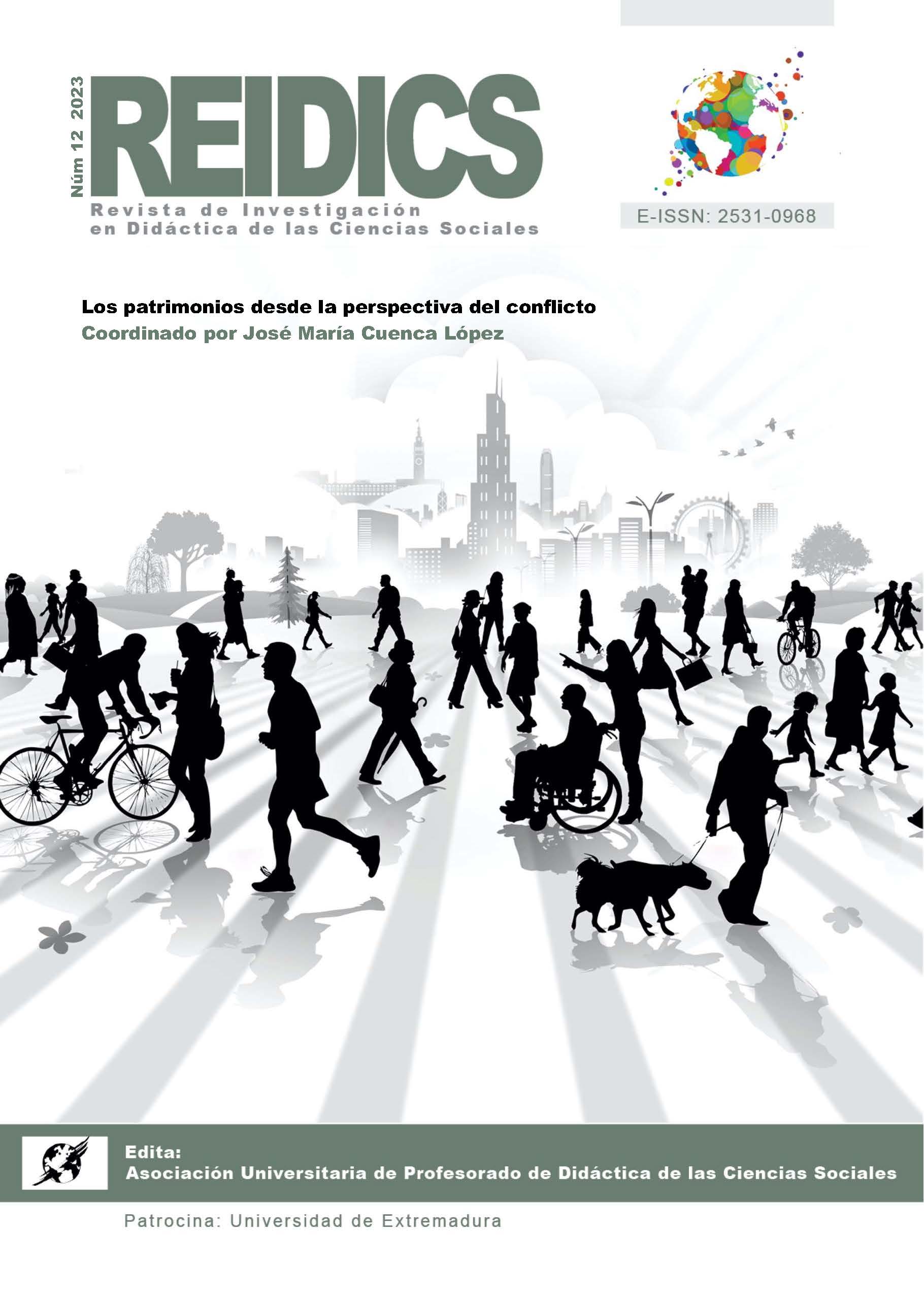Controversial heritage, identity, territory and emotions: the place of 'moral panics'
DOI:
https://doi.org/10.17398/2531-0968.12.02Keywords:
Heritage education, heritage, identity, territory, emotions, social fearsAbstract
In this theoretical background article we try to introduce the concept of "identity fear" in the field of school Social Sciences, especially in Heritage Education, and to relate it to the line of research that focuses on the study of controversial heritage in the classroom. Controversial heritage seeks to encourage students to think critically about the historical past, as represented in heritage, and other relevant socio-environmental issues. The typology of this heritage encourages critique and debate, but also has connections to identities, territories and emotions.
Identity fears group together possible underlying individual or collective social fears in society and arise when identity and territorial elements are considered to be challenged. In addition, they often respond to intense emotions. Controversial heritage and identity fears are associated whenever the heritage element has a high identity and even emotional charge. In post-truth societies, the easy and uncritical access to distorted information when working on this type of heritage in the classroom can generate tensions, conflicts, unfounded questioning and even resistance among pupils, which can alter or reduce the value of a comprehensive heritage education.
Downloads
Published
Issue
Section
License
Aquellos autores/as que tengan publicaciones con esta revista, aceptan los términos siguientes:
- Los autores/as conservarán sus derechos de autoría y garantizarán a la revista el derecho de primera publicación de su obra, el cual estará simultáneamente sujeto a la Licencia de reconocimiento de Creative Commons 4.0 BY-NC-SA que permite a terceros compartir la obra siempre que se indique su autor y su primera publicación en esta revista.
- Los autores/as podrán adoptar otros acuerdos de licencia no exclusiva de distribución de la versión de la obra publicada (p. ej.: depositarla en un archivo telemático institucional o publicarla en un volumen monográfico) siempre que se indique la publicación inicial en esta revista.
- Se permite y recomienda a los autores/as difundir su obra a través de Internet (p. ej.: en archivos telemáticos institucionales o en su página web) antes y durante el proceso de envío, lo cual puede producir intercambios interesantes y aumentar las citas de la obra publicada. (Véase El efecto del acceso abierto).
- Los autores y autoras han respetado la política de autoría de esta revista.







